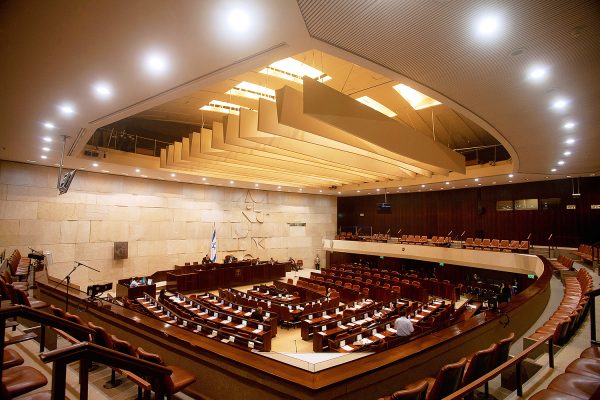
Israel’s center-left has a chance to eject Benjamin Netanyahu after twelve years of right-wing government — if they are willing to make a deal with Arab parties.
Deals with non-Zionist parties are almost taboo in Israel, which is 75 percent Jewish. This permanently excludes the 20 percent of Israelis who are Arab from power.
Little wonder Arab turnout is consistently low and fell below 50 percent on Tuesday, according to estimates.
Sixth term
Netanyahu has been indicted on three charges of bribery and fraud, disparaged journalists who wrote about the stories, vilified prosectors and judges, politicized Israel’s vital relationship with the United States and neglected relations with Europe.
He deserves credit for Israel’s vaccination success. Half the population over 16 has been vaccinated against COVID-19, and 80 percent of the population over 60.
But that’s not the only reason he could still win a sixth term, despite losing seven of his conservative party’s 37 seats in the Knesset; Netanyahu’s rivals lack his knack for pragmatism. Whereas Netanyahu has been able to make deals with Orthodox Jewish as well as secular centrist parties, the left has failed to form a broad coalition against him.
Balance of power
Parties loyal to Netanyahu, including Orthodox parties, are projected to win 46 seats. His opponents, including the Arab Joint List, would win 56 seats. 61 seats are needed for a majority.
The balance goes to the second Arab party, Ra’am, which insists it isn’t “in the pocket” of either side; New Hope, a new center-right party led by Likud defector Gideon Sa’ar; and Yamina (Rightward), another new right-wing party led by former economy minister Naftali Bennett.
Sa’ar, a former interior minister, insists he will not serve under Netanyahu, but he has not ruled out joining a right-wing coalition.
Bennett has ruled out supporting a government of the left, but he is keen to defeat Netanyahu and take his place as the leader of the Israeli right.
The religious parties Shas and United Torah Judaism are projected to win a combined sixteen seats.
Options
The results give Benny Gantz and Yair Lapid, the leaders of the centrist parties, various options to form an anti-Netanyahu coalition.
The most straightforward is a deal with the Arab Joint List and Ra’am, which would give them 61 seats. Yisrael Beiteinu (Israel Our Home), their most right-wing ally, might balk at such a pact, but then they could turn to Shas, the largest party of Haredi Jews. It said on Wednesday it doesn’t rule out an agreement with the Arabs.
A broad coalition of left, right and Orthodox parties would be more complicated. Meretz, the most left-wing party, has said it is willing to talk with New Hope and Yamina. Neither would want to be the only right-wing party in a coalition. Yisrael Beiteinu would almost certainly say no, given its opposition to Orthodox interests. The Orthodox parties would have a hard time justifying a pact with any left-of-center party to their voters.
Bloc politics
The center-left’s priorities must be unseating Netanyahu, a corrupt leader who has done little to alleviate Israel’s cost-of-living crisis, and unblocking Israeli politics.
Bloc politics brings all the vices of two-party democracy into a multiparty system; polarization, parties appealing to their extremes instead of the center, an unwillingness to compromise.
In Spain, where the center-right People’s Party and center-left Socialists had a duopoly until 2015, the liberal-nationalist newcomer Ciudadanos (Citizens) made the mistake of grouping with the right and refusing a coalition with the Socialists. Voters in the middle, who longed for an alternative to left- or right-wing rule, were disappointed. Voters on the center-right switched back to the People’s Party. Voters on the far right found an alternative in the neo-Francoist Vox (Voice). The Ciudadanos are on the verge of extinction.
The Socialists did better. They made deals with far-left and regional parties, including a Basque separatist party with remnants from the defunct terrorist organization ETA. They even took votes from Vox to pass their coronavirus recovery program.
In Northern Ireland, Catholic nationalists and Protestant unionists were able to share power after decades of civil war.
In Hungary, liberal and left-wing parties have made a pact with the formerly fascist Jobbik, which is reinventing itself as a Christian nationalist party, in order to try to defeat Viktor Orbán in next year’s election.
If they can set aside their differences, so can Netanyahu’s opponents.
